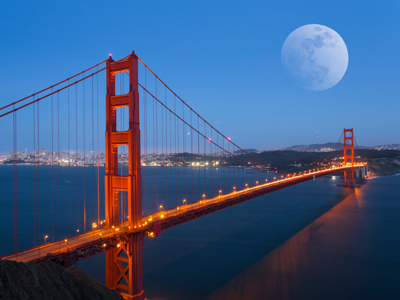Before we get into the phases of the Moon, let’s first find out what the Moon is. The Moon is a natural satellite. A natural satellite is a celestial body that orbits around another body. In our solar system, there are 217 natural satellites that are currently known. The Moon is Earth’s only natural satellite and was formed about 4.5 billion years ago. Its rotation synchronizes with the Earth’s. It is also the second brightest object in the Earth’s sky after the Sun.
The Moon orbits around the Earth once every 27.3 days. However, because the Earth is also rotating and orbiting around the Sun, the phases of the Moon occur about every 29.5 days.
So what are the phases of the Moon? The phases of the Moon are also known as “lunar phases” and they occur in a repeated cycle. The phases are directly related to the positioning between the Earth, the Moon and the Sun. This relationship affects how visible the Moon appears from the Earth. There are four primary phases of the Moon that include the 1st Quarter Moon, the Full Moon, the 3rd Quarter Moon and the New Moon. The 3rd Quarter Moon is also referred to as the Last Quarter Moon.
The New Moon: This is actually the first phase of the Moon in a lunar month (not a calendar month). This occurs when the Sun and the Moon are aligned on the same side of the Earth and the Moon is closest to the Sun.
1st Quarter Moon: This phase occurs between the New Moon and the Full Moon. It is the phase when only half of the Moon appears to be visible from Earth. At this phase the Moon rises at noon and is high overhead at sunset. Finally, it sets around midnight. Although it is referred to as a “quarter” – half of the Moon’s surface is visible so it is also often referred to as a Half Moon.
A Full Moon: This is when the Moon is completely illuminated by the Sun because it is opposite of the Sun. Because the Moon is fully lit, it often appears to be bigger and closer to the Earth.
3rd Quarter Moon (Last Quarter Moon): This phase occurs between the Full Moon and the New Moon with only half of the Moon’s surface visible from the Earth. This phase of the moon is not seen as often because it occurs between midnight and noon, meaning the moon rises at midnight and sets at noon. If you are seeing the Moon during daylight hours, then you know it is the 3rd Quarter/Last Quarter Moon.
The Moon’s phases do not fully align with a dated calendar. Therefore, to track the Moon’s phases, a lunar calendar is used. A lunar calendar is a calendar that is based on the phases of the moon and cycles approximately every 29 to 30 days.








